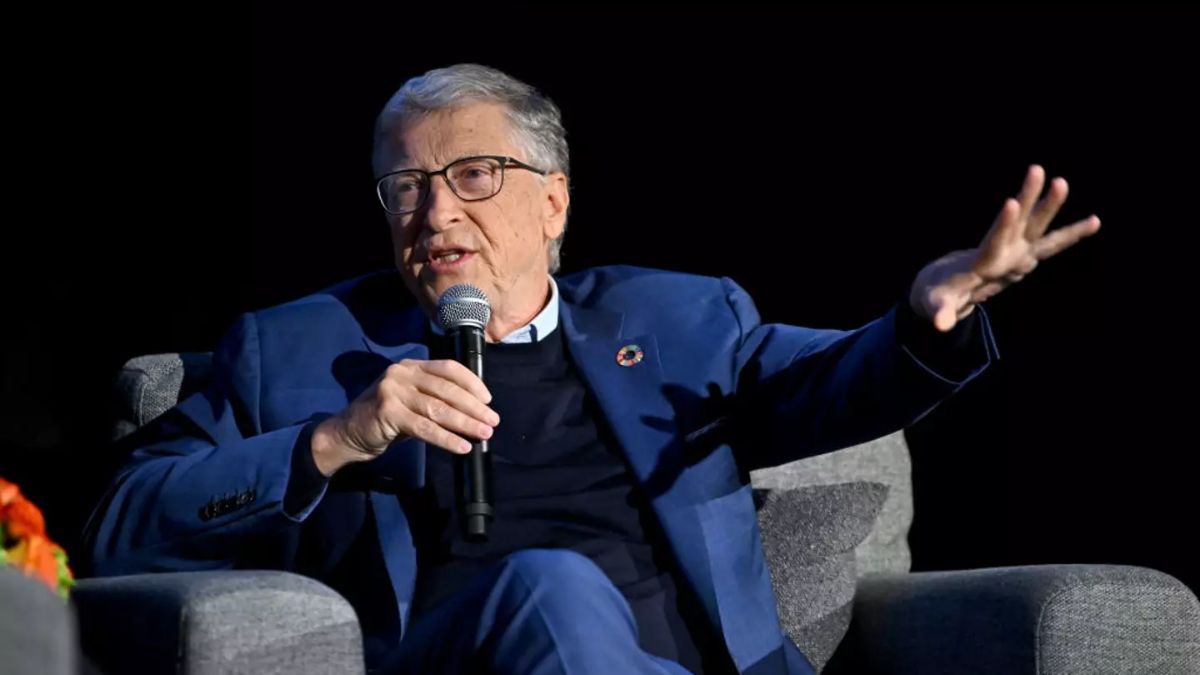Microsoft's Mobile Market Failure: Bill Gates' Biggest Regret and Rich Miner's Bold Claim
Did Microsoft miss the boat on mobile, costing them a staggering $400 billion? It's a question that's reverberating throughout the tech world, with Bill Gates himself admitting it was a monumental mistake. But Android co-founder Rich Miner isn't just placing blame on market forces; he's pointing a finger directly at Gates' strategic decisions. In a recent social media post, Miner laid bare his belief that Gates' leadership decisions were the primary cause for Microsoft's downfall in the mobile market, a misstep Miner claims he predicted over 20 years ago. Buckle up for a deep dive into this explosive tech saga and the lessons learned.
Rich Miner: The Forewarned Prophet?
Rich Miner, a key figure in the development of Android, claims he foresaw the potential for Microsoft to stifle mobile innovation, just as they were accused of doing with personal computers. His statement isn't mere hindsight; it's grounded in his experience working on early Windows Mobile devices. He clearly articulates his concern that Microsoft would create a monopoly, killing off competition, resulting in their loss of mobile market share and ultimately the $400 billion loss.
Early Warnings and Microsoft's Missed Opportunity
Miner worked on the Windows Mobile Phone Special Purpose Vehicle (SPV) in 2002. His insight was prescient and, he believed, crucial in helping pave the way for creating the Android ecosystem. Having witnessed the rise of Microsoft's PC dominance and its associated practices of limiting competition and innovation first hand, he was compelled to work towards a more open-source alternative for mobile devices. He wasn't just an observer; he became a key participant in developing a system that would go on to challenge the very company he’d witnessed stifling competition in another area. This proactive action speaks volumes to the forethought involved and the consequences that he foresaw Microsoft's strategy would bring.
The Android Antidote
Miner's claim is not just retrospective analysis. It underscores his fundamental philosophy: the mobile market would thrive on openness. He saw an open platform as a way to truly compete with Microsoft, fostering creativity and technological advancement and preventing the PC model of limiting the competitive space from infecting the mobile ecosystem. This open platform has since gone on to be widely adopted with Android powering many more of the phones being sold worldwide compared to products that rely on the iOS system.
Bill Gates: A Different Perspective
Bill Gates acknowledges Microsoft’s colossal mistake. While Miner directly accuses his business strategy as the reason behind the billions of dollars in lost revenue, Gates himself admits the missed mobile opportunity as "one of the greatest mistakes of all time." His view doesn't directly blame his decisions. Instead, he speaks to the challenges in software market dominance and market consolidation within the space; in a platform based market, he explained, it was fundamentally a "winner-takes-all" style of business with one entity becoming the predominant leader.
The Winner-Takes-All Market
Gates explains his perspective with a candid, self-aware description of what led to Microsoft missing the mobile revolution: their leadership was partly to blame. The misstep by leadership not being more responsive, creative and nimble in their competitive strategy ended up leading to their demise as the main contender to challenge the Apple iPhone.
Microsoft’s Delayed Response
Microsoft's delayed entry into the mobile market is often cited as a critical factor. By the time Windows Phone 7 launched in 2010, the dominance of Apple's iPhone and Google's Android was almost insurmountable. Their attempt to enter the space was hampered by many years of strategic mistakes, leading the tech juggernaut behind their competitors and making the already steep hill to climb even taller. The failure to adapt and embrace the same kind of open, nimble response in mobile devices and services proved fatal.
Microsoft's Mobile Acquisitions and Retreat
In a late attempt to bolster their standing, Microsoft acquired Nokia’s mobile business in 2013 for a significant $7.2 billion. This however, turned out to be another costly misstep, underscoring their failure to gain traction. Then-CEO, Satya Nadella, reversed course, effectively abandoning the effort by 2015 after further costly expenditures and personnel cuts. In retrospect, this move further highlights the magnitude of the mobile market error that impacted business across their operational units.
Lessons from Microsoft's Mobile Failure
Microsoft’s mobile misadventures offer important lessons to other tech giants. A rigid adherence to legacy strategies and the lack of understanding and response to rapidly changing markets and technologies cost the company massively in lost revenue and more significantly in loss of competitive advantage.
Take Away Points
- Microsoft’s failure to successfully compete in the mobile phone market remains one of the most significant events in tech history, estimated at a $400 billion loss.
- Rich Miner directly attributes this to leadership decisions under Bill Gates. His prescient observations from working with the original Windows mobile devices underscores the value of open innovation over attempts to dominate the entire market from a monopolistic position.
- Bill Gates admits responsibility, characterizing it as a significant strategic miscalculation in a winner-take-all market.
- The saga highlights the importance of agility and adaptability in rapidly changing markets like mobile and provides important context for all organizations to constantly strive to adjust and change as needed to compete against disruptive technologies.




